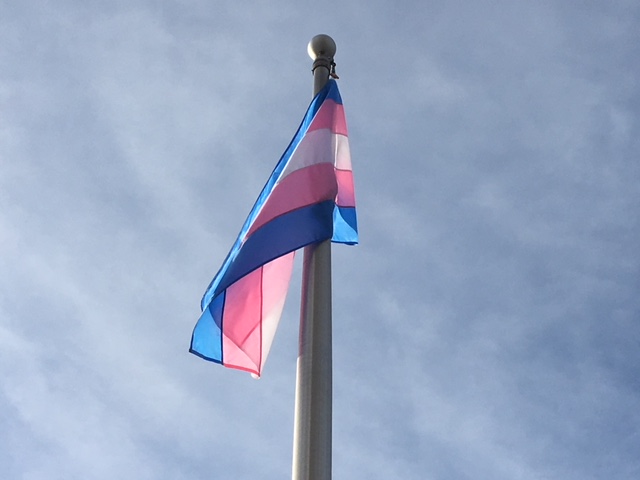All she wanted was for her identity documents to accurately display who she was.

Born in Edmonton in 1990, Cathy Fitzpatrick transitioned in 2010, while studying at the University of Alberta.
“I discovered I couldn’t get any government documents that accurately reflected my sex because it was all based on birth certificate at the time, which said I was male,” she told Global News.
READ MORE: MRI scans suggest transgender people’s brains resemble their identified gender: study
At the time, Alberta regulations required sex-reassignment surgery and a medical examination from anyone who wished to change the “sex” section on their birth certificate.
So, at just 21 years old, Fitzpatrick took the government of Alberta to court. And she represented herself.
“I decided basically I had to learn the law so I could figure out how I could fix this.”
READ MORE: Judge says Alberta law violates transgender rights
Fitzpatrick started combing through Canadian case law on CanLII and reading as much as she could. In April 2012, she filed the initial application in court.
“I ended up filing a lawsuit in which I alleged that Alberta’s surgery and strip search requirements were unconstitutional under the Canadian Charter of Rights and Freedoms.
“The main theory I had was that the birth certificate issue of this regime was discriminatory because it treated people who are transgender differently than people who are not transgender.”
READ MORE: Does gender no longer work on birth certificates
Fitzpatrick spoke to Global News over the phone from her home in California. She moved to the U.S. shortly after winning her legal case in Alberta.
READ MORE: Proof of gender reassignment surgery no longer required for birth certificate amendments
Even though her lawsuit was historic, her name may not sound familiar. That’s because, until recently, Fitzpatrick’s identity was protected by a court-ordered publication ban that she applied for. Her case is referred to as C.F. v Alberta. This year, she applied to the court to lift the publication ban on her name. On Nov. 19, 2018, it was granted, effective Sept. 21, 2018.
“I really think that my story is a powerful story of how one person can take on a huge system like the government and make change in the world.
“I think the story is more powerful when I add a touch of humanity to it by introducing myself and talking about some of the personal struggles I went through.”
The lawsuit took over Fitzpatrick’s life. Handling the case herself consumed her time and money. She had to drop out of law school. She had saved a bit of money but the case nearly broke her.
“I was able to pull it off but it was very hard. It became the only thing I could do in my life. I had to compartmentalize. It was very difficult.”
“If I hadn’t won the case when I did, I would have basically run out of money.”
Almost immediately after the decision in April 2014, the province gave her a birth certificate identifying her as female.
“I always believed I would win but a lot of people were quite pessimistic about it. Certainly the government had been telling me through all its papers that my position lacked merit and would not be successful. I was quite happy to know that actually I was right and I was vindicated by the court.”
READ MORE: Canadian transgender soldier speaks out on transitioning to help others
Four years later, her numerous educational initiatives are another reason she felt it was time to release her name publicly.
“I want to start a campaign of educating people about the law in general.”
“Both in the U.S. and Canada, there’s a lot of misunderstanding about the law… which is really unfortunate because everything we do is governed by the law. If people don’t understand how it works, they can’t make informed decisions about things.”
READ MORE: Albertans can now choose ‘X’ gender marker on ID cards, documents
She’s launched a website to combat hate, ignorance and intolerance. She’s also using it as a place to educate others about the legal system, their rights and freedoms, and pointing them to resources that helped her.
She also recently joined Twitter as @cathyjf1.
“I want to be a resource of general information for people. I can’t necessarily help with their individual situations but I can provide general information that benefits the public.”
READ MORE: Alberta gives new birth certificate to 12-year-old boy who was born a girl
Fitzpatrick hopes education will lead to action. That’s one of the main reasons she’s sharing her story now.
“I hope it will encourage other people to stand up for themselves and stand up for their rights.
“I want people to know that it’s possible if you’re just a 21-year-old student with almost no resources, you can still make a big difference in the world. These systems are not impregnable; they are malleable if you’re willing to put in the work.”
Fitzpatrick is now 27 years old. She’s worked for Facebook and Google and eventually plans to return to law school.
READ MORE: Trump administration is trying to remove official recognition of transgender people: NYT
“If the case was the only thing major I did, it would be enough because it was a rather remarkable achievement that I created a precedent that transgender people are entitled to equality under the Canadian Charter of Rights and Freedoms.
“But I’m actually wanting to do more as well because the world is not perfect yet. There’s still room for improvement.”
- Calgary fatal stabbing victim ‘gave himself’ to help those fleeing war in Ukraine
- Innovative nursing education: Mannequins lead the way in Alberta
- Calgary police looking for suspect in March southeast hotel homicide
- Alberta introduces legislation to reduce high power-bill fee surcharge for Calgarians




Comments